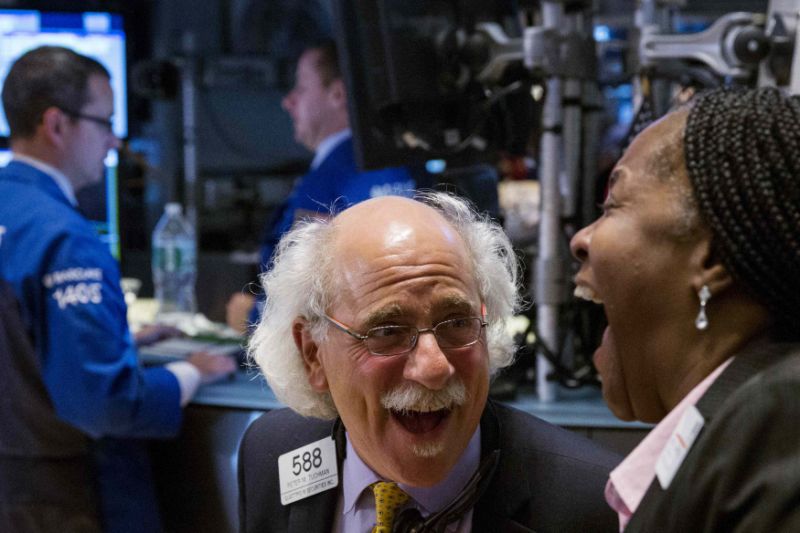 American consumers are apparently not worried about stock market volatility.
American consumers are apparently not worried about stock market volatility.
According to the University of Michigan’s report on consumer sentiment for the first half of February, worries over the stock market sell-off that rocked markets last week were scarce.
“Consumer sentiment rose in early February to its second highest level since 2004 despite lower and much more volatile stock prices,” said Richard Curtin, chief economist for the survey.
The sentiment index hit 99.9 in the first half of February, better than the 95.5 reading that was expected by economists. And even among households in the upper third of the income scale, the sentiment index creeped higher in the first half of February and say just below highs seen in 2007, 2004, and 2000. Higher income tiers own more financial assets and are likely to be more sensitive to changes in markets.
“Stock market gyrations were dominated by rising incomes, employment growth, and by net favorable perceptions of the tax reforms,” Curtin said.
“Indeed, when asked to identify any recent economic news they had heard, negative references to stock prices were spontaneously cited by just 6% of all consumers. In contrast, favorable references to government policies were cited by 35% in February, unchanged from January, and the highest level recorded in more than a half century. In addition, the largest proportion of households reported an improved financial situation since 2000, and expected larger income gains during the year ahead.”
Last week, each of the major indexes fell more than 5%, the worst week for the stock market in two years. This week, however, stocks have finished higher each day and moved back into positive territory for the year after having forfeited all year-to-date gains last week. It seems then that both markets and consumers have been quick to shake off whatever fears were realized during a chaotic week of trading.
Andrew Hunter, an economist at Capital Economics, noted that Friday’s report also shows that for consumers — like the markets — it appears to be coming down to tax cuts driving optimism right now.
“The rise in the University of Michigan consumer confidence index…may be the first sign of the boost to consumers from lower taxes,” Hunter said in an email on Friday. Adding that this data, “suggests that, even if consumption growth slows in the first quarter, spending will continue to grow at a solid rate over 2018 as a whole.”

